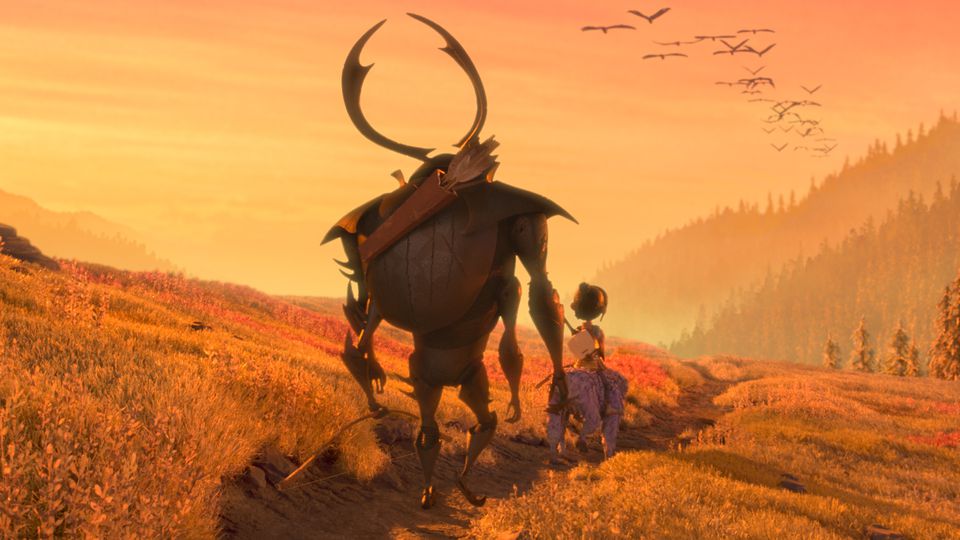SEPTEMBER 2, 2016
“Kubo and the Two Strings” is by far the best film about origami that I’ve seen this year.
This is the fourth film from Laika Studios, the stop-motion animation specialists based in Oregon, whose films look like no other. Their first three films, “Coraline,” “ParaNorman” and “The Boxtrolls” all received Oscar nominations for Best Animated Feature, and I would be stunned if “Kubo and the Two Strings” didn’t make it four in a row.
Unlike many animated features released this summer that are heavy-handedly filled with pop culture references and slightly dirty innuendo, “Kubo and the Two Strings” is a fable in the most classic sense. Kubo (voiced by Art Parkinson from “Game of Thrones”) is a one-eyed boy washed ashore after a storm with his mother Sariatu (Charlize Theron). Kubo earns money for the family as a street performer who brings his origami creations to life while plucking music on his shamsen, much to the delight of the townsfolk, especially an older friend named Kameyo (voiced by Brenda Vaccaro).
When an attempt is made to abduct Kubo by his mother’s two sisters (both voiced by Rooney Mara), Sariatu makes a suicidal attempt to take on her sisters while transferring her magical powers to a monkey doll (also voiced by Theron) and a samurai beetle (voiced by Matthew McConaughey). Both the monkey and the beetle help Kubo to find the protective armor of his father who was killed by Kubo’s evil grandfather The Moon King (voiced by Ralph Fiennes).
If all this sounds complicated, it isn’t, because director Travis Knight unveils his story at a pace that can generously be called leisurely (polite criticspeak that means it’s slow), but as slow as it is, the script by Marc Haimes and Chris Butler makes it clear that this is a life quest for Kubo and that, for him, the stakes couldn’t be higher.
But what’s most striking about “Kubo and the Two Strings” is how it looks. Earlier attempts at stop-motion animation were often herky-jerky, but, in addition to the striking vistas that Knight creates, it’s the fluidity of motion of the characters that makes “Kubo” such a pleasure to watch.
In a summer movie season where films (particularly some animated ones) try to outdo one another in volume, it’s nice to be able to be able to sit back and allow a quietly affecting fable to simply wash over you.
GRADE: B












